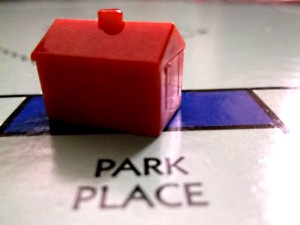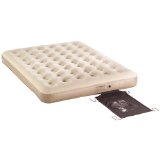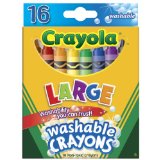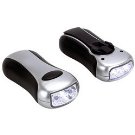 Buying a home is a tricky, frustrating, exciting, scary, and fulfilling process. There are so many different emotions and hoops to jump through. It’s such a complicated and emotional process that it can either be easy to get swept away in the process or tempting to just scrap the whole idea altogether.
Buying a home is a tricky, frustrating, exciting, scary, and fulfilling process. There are so many different emotions and hoops to jump through. It’s such a complicated and emotional process that it can either be easy to get swept away in the process or tempting to just scrap the whole idea altogether.
I know this from personal experience, since I’ve been in the market for a new home for the last couple of years. I’ve had my ups and downs during the process, but I still have yet to find The Home. So far, every one has fell through. One got sold out from underneath me, one wasn’t worth the asking price, and the others – well, I’m picky.
Just about everyone who has done their research and looked into buying a home already knows the basic do’s and don’ts of buying a home, such as making sure your credit is good and getting pre-approved for a mortgage. However, most of the time, it’s way more in depth than that.
So, here are a few not so obvious don’ts of buying a home.
Don’t Settle for a “Good Enough” Location
It’s one of the most prominent sayings in real estate… “Location! Location! Location!” And for good reason. When looking into buying a home, the location should be one of the most important factors you consider.
First of all, the location of your new home can impact the cost of future expenses, including insurance premiums and taxes. You should also consider the location of your home in proximity to work, school, entertainment, and family.
Finally, can you picture yourself living in a potential location happily for a year? How about 5 years? 10 years? 30? Always look at buying a home as a long-term situation. If you won’t be happy living in a particular house for several years, you may want to pass on it.
Don’t Buy a Home That’s Too Expensive
I know – this one should be a no-brainer, since it’s basically part of Buying a Home 101. However, many people still do buy a home that’s simply too expensive for them.
As a general rule, your mortgage should not exceed around 30% of your total gross monthly income. That’s before taxes. Financial institutions won’t lend you the money for a house if your mortgage payment exceeds this, but most will give you a mortgage for a home with a monthly payment close to this.
However, just because you can buy a house with payments that cost a third of your monthly income, doesn’t mean you should. Figure out what your net (after tax) income is and go from there instead. Even then, try to find a home that will have monthly payments lower than the 30% allowance. That way you’ll have a little wiggle room and still be able to save money or pay for any unexpected expenses.
Don’t Forget Long-term Financials
A house with a super low monthly mortgage payment is every new homeowner’s dream. But, is it really worth it in the long run?
When buying a home you’ll have to consider any extra expenses that you’ll have in the near future. For instance, a house may be going for super cheap because it’s outdated or needs repairs. Even little repairs can add up over time, especially if there are a lot of them that need to be done. Major repairs, such as updating electrical systems or replacing a roof, are neither easy nor cheap!
You’ll also want to take a look at the amount of money you’ll spend on your mortgage in the long run. Look at the selling price of the house compared to what you’ll actually spend after all of the interest and bank fees come into play. Typically, you can lower the amount of money you’ll spend when it’s all said and done if you get a shorter loan or make double payments. This is where a cheaper home with lower payments comes in.
Don’t Buy Too Much House
You’re probably excited about buying a house and want lots of extra space. Unfortunately, this isn’t always the best idea. While you don’t want to feel cramped in your new home, you don’t want to buy a house that’s too big either.
Larger homes generally come with larger price tags. How’s that for an economics lesson? Additionally, larger homes also come with more expenses too. They’re more expensive to heat and cool, for instance, and usually have higher insurance costs.
Only buy as much house as you need, both now and in the future. If you want lots of extra space without the huge price tag, look into homes with unfinished attics or basements. You can fix these areas up a little at a time throughout the years, and eventually have the extra space you always dreamed of.
Don’t Sweat the Small Stuff
There are some things that matter greatly when buying a home and some things that don’t.
For instance, a cracked or crumbling foundation matters and should make you seriously consider purchasing a home. On the other hand, that disturbing fuschia color on the living room wall – although hideous – does not matter much.
Basically, don’t sweat the small stuff when buying a home. If a home has a simple cosmetic flaw, don’t rule it out. This is especially true if you’re handy with a paintbrush and power tools.
Don’t Get Emotionally Attached
Bam! There it is. This has been my downfall a couple of times during my house hunting. I’ve actually ended up in tears a couple of times when I realized that I wasn’t getting the “house of my dreams”. My problem is that I get ahead of myself and I get emotionally attached.
It’s certainly a good thing if you love a house and can picture yourself living in it comfortably. It’s a whole ‘nother thing to start planning backyard barbecues, picturing your little girl coming down the stairs for her first prom, and generally feeling that it’s “this house or nothing”.
When buying a home, it’s a good idea to hope for the best and prepare for the worst. So, do yourself a favor and don’t get emotionally attached! If a house deal falls through for one reason or another, realize that it wasn’t the house for you and move on.






